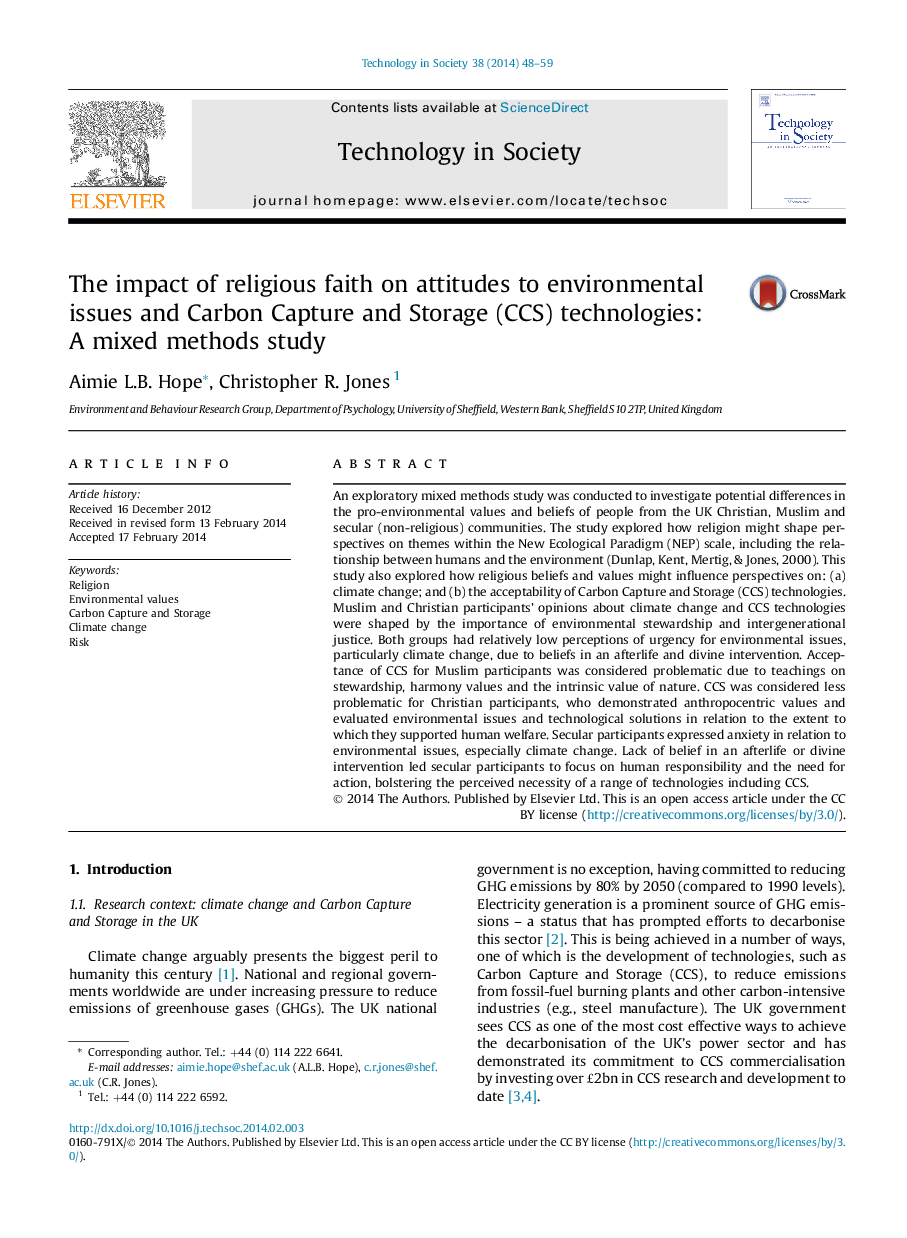| Article ID | Journal | Published Year | Pages | File Type |
|---|---|---|---|---|
| 6851672 | Technology in Society | 2014 | 12 Pages |
Abstract
Muslim and Christian participants' opinions about climate change and CCS technologies were shaped by the importance of environmental stewardship and intergenerational justice. Both groups had relatively low perceptions of urgency for environmental issues, particularly climate change, due to beliefs in an afterlife and divine intervention. Acceptance of CCS for Muslim participants was considered problematic due to teachings on stewardship, harmony values and the intrinsic value of nature. CCS was considered less problematic for Christian participants, who demonstrated anthropocentric values and evaluated environmental issues and technological solutions in relation to the extent to which they supported human welfare. Secular participants expressed anxiety in relation to environmental issues, especially climate change. Lack of belief in an afterlife or divine intervention led secular participants to focus on human responsibility and the need for action, bolstering the perceived necessity of a range of technologies including CCS.
Related Topics
Social Sciences and Humanities
Business, Management and Accounting
Business and International Management
Authors
Aimie L.B. Hope, Christopher R. Jones,
